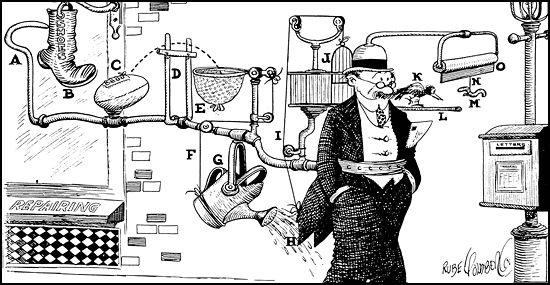
Shale oil does not stop at devastating the Dakota or Texas undergrounds, but also threatens to undermine the U.S. high yield debt* market and provoke another collapse, if the oil barrel price continues plummeting and reaches the $50 threshold on the New York Mercantile Exchange (NYMEX).**
The debts of most fracking enthusiasts are being converted into junk bonds: the stock would be about $900 billion, that is, 15 percent of the high yield market. However, since October, the yield spread has literally exploded in comparison to other risky borrowers, which means that, on a smaller scale, the phenomenon of massive aversion to shale gas specialists is starting to resemble the one that was lethal to mortgage subprime in spring 2007.
Rating agencies are exercising the same passivity they displayed seven years ago, and shale oil specialists hint at isolated defaults, no more than in any other industry to date, be it oil or mining.
Everybody sees clearly that the wick is lit and connected to a powder keg. However, the “opinion makers” continue to remind people to keep cool: any rise in oil price above the $65 threshold would be equal to stepping on and extinguishing the lit wick.
Also, even though oil is on a dangerous downward slope, the wick is long and the danger of explosion still remains far off.
Extreme weather conditions are plaguing both the U.S. and Europe, geopolitical tensions are increasing in the Middle East (winter remains the favorite period for grand scale military operations), political changes are seemingly imminent in Israel: these many factors should make us forget the Organization of the Petroleum Exporting Countries (OPEC) secretary-general’s declaration last weekend. He stated that the current production quotas are not the cause of the current sell-off (in other words, Saudi Arabia has no intention of closing the tap), but that downward speculation plays a determining role in the decline in prices.
Nicolás Maduro said Venezuela is not accustomed to defaulting, but the credit default swap (CDS)*** covering the country’s bond issuance displays a stratospheric premium at 950 basis points.
However, it is still very premature to worry about a potential domino effect capable of affecting other countries where the oil revenues are the ultimate pillar holding against social chaos.
This would only happen if the volatility index (VIX) associated with the S&P 500 were to increase by 75 percent between Dec. 8 and Dec. 12 (never seen before in December), and it would most likely have no relation with the 60 percent flat fall of several oil industry leaders since January 2014.
The free fall in Dubai (-7.6 percent) on Sunday, Dec. 12 (after -15 percent last week), which amounts to a 62 percent correction since the annual highest point of the Dubai Financial Market (DFM) index, does not in any way evoke the “canary in a coal mine” metaphor!
Santa Claus (or Super Mario) will make it all better on Dec. 25 with the promise of plenty of newly printed euros.
*High yield debt (also known as a junk bond) is debt that has a high risk of default but is extremely profitable
**New York Mercantile Exchange (NYMEX) is a commodity futures exchange market.
***A credit default swap (CDS) is a financial swap agreement that the seller of the CDS will compensate the buyer (the creditor of the reference loan) in the event of a loan default (by the debtor).

Leave a Reply
You must be logged in to post a comment.